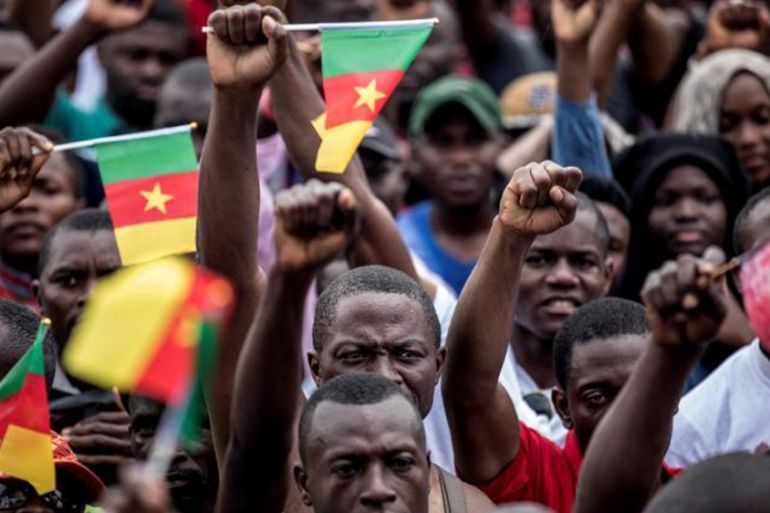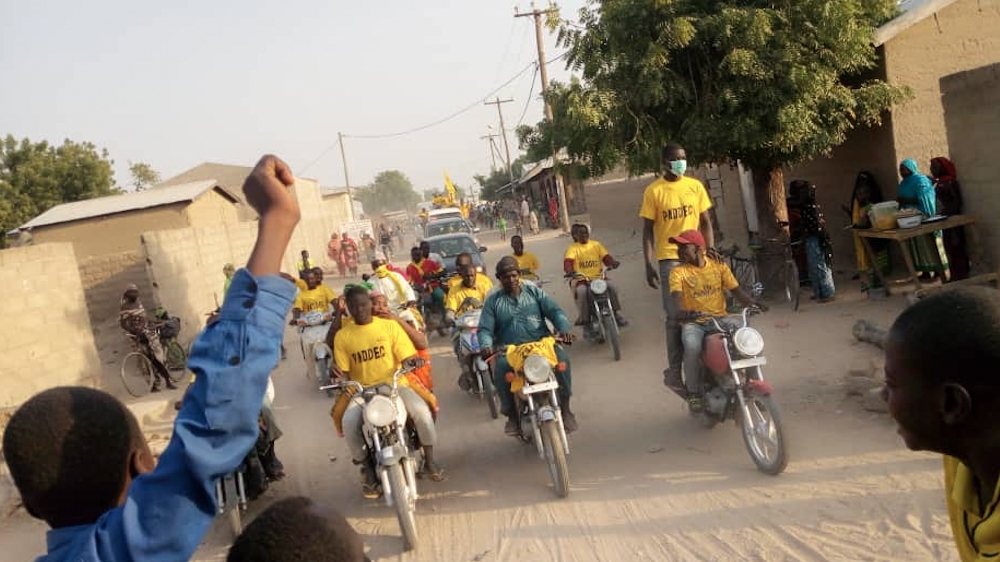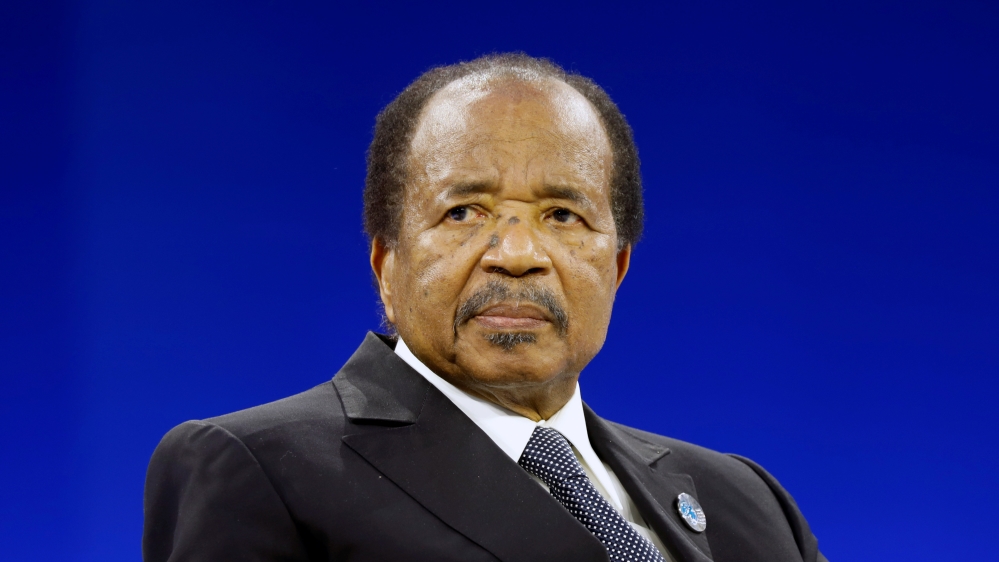Cameroon gears up for delayed polls amid security fears
Nearly seven million people are eligible to vote to pick 180 federal legislators and 360 local council officials.

Cameroon is gearing up for long-delayed parliamentary and municipal elections amid a boycott call by the country’s main opposition party and security concerns in the unrest-hit Anglophone regions.
Nearly seven million voters are eligible to cast ballots on Sunday to pick 180 federal legislators and 360 local council officials. Polls will open at 07:00 GMT and close at 17:00 GMT, with official results within 20 days.
Keep reading
list of 3 itemsCameroon anglophone separatist leader gets life sentence: Lawyers
Victims of breast ironing: It felt like ‘fire’
Speaking to Al Jazeera, Enow Egbe, president of Elections Cameroon (ELECAM) said the electoral body is “ready” to hold free and fair elections.
“We can assert that the packaging and transfer of electoral material and documents to regions is completed”.
The polls were twice postponed in 2017, and political tension has been on the rise since November after the main opposition Cameroon Renaissance Movement (CRM) announced a boycott of the elections.
The party’s leader, Maurice Kamto, lost the 2018 vote to long-time President Paul Biya but denounced the result as fraudulent. He was arrested in January and spent nine months in jail before Biya ordered him freed, in what the government described as a move of national reconciliation.
“The environment is not as tense as it was a few months back,” Egbe said. “This notwithstanding, the government is ensuring the security of the electoral process from end-to-end,” he added.
“Necessary measures have been taken to enable willing voters to go out and vote.”

More than 30 parties are participating in Sunday’s parliamentary and municipal elections, with their campaigns mainly focusing on improving the country’s economy and security.
Biya’s Cameroon People’s Democratic Movement (CPDM), which holds 148 seats in the 180-strong parliament, is widely expected to come first.
The Social Democratic Front, which is currently the main opposition party in the parliament with 18 legislators, will contest the elections, but Kamto’s MRC has called on other parties, as well as civil society and religious groups, to boycott the polls.
Kanto said the boycott would be “to avoid giving credibility to elections which will not restore peace in our country”.
But Cabral Libii, a parliamentary candidate and leader of the opposition Cameroon Party for National Reconciliation, waved off the calls to stay away from the voting stations.
“Boycotting the polls won’t change anything. We have to continue participating in all elections and hoping that things change,” Libii told Al Jazeera.
“We are exercising our right to participate and hope that people vote massively for us on election day. Those who have decided to boycott the elections are also exercising their own rights,” he said.
Some opposition parties have been out on the streets campaigning and calling voters to turn out for the elections and remain at polling stations
“We are encouraging them to ensure their votes are counted by ELECAM officials,” Libii said.
Fresh security fears
Still, the much-anticipated polls will take place amid heightened security fears in a country grappling with a separatist armed campaign in the Anglophone regions as well as the threat of Boko Haram in the Far North.
The conflict between Cameroon’s army and English-speaking fighters seeking to form a breakaway state began in 2017 after the government cracked down violently on peaceful protesters complaining of being marginalised by the French-speaking majority.
People in the English-speaking Northwest and Southwest regions have often complained of decades of perceived discrimination by the central government.
The conflict has so far killed hundreds of people and caused mass displacement, including more than 670,000 people in Cameroon and 52,000 in neighbouring Nigeria, according to Amnesty International.
Days before the polls, the military was deployed to the English-speaking regions while police have been on high alert after several suspected separatist attacks in the political capital, Yaounde, and the economic hub Douala.
Separatists have taken to social media to call for a boycott of the polls and reportedly pledged to attack polling stations in the Anglophone region.
“The security measures and increased military presence announced by the Cameroonian government to ensure this weekend’s vote can take place appear to have been a pretext for a much more sinister operation,” Fabien Offner, Amnesty International’s Lake Chad researcher, said.
“In recent weeks, brutal military operations have been conducted while crimes committed by armed separatists continue unabated. Civilians are finding themselves trapped in a spiral of violence,” Offner added.
Analysts said this may further prompt some voters to stay away, while some displaced voters flatly rejected heading back to cast ballots.
“Why will I think of going back? You want me to be killed? The politicians don’t care about us and I won’t waste my time,” said Mary, a woman driven out of her home in Buea due to conflict and who is now in Calabar, southern Nigeria.
“If everything was fine and was sure votes would count, I may be tempted to return home. Now, I am not even sure of my safety,” she added.
